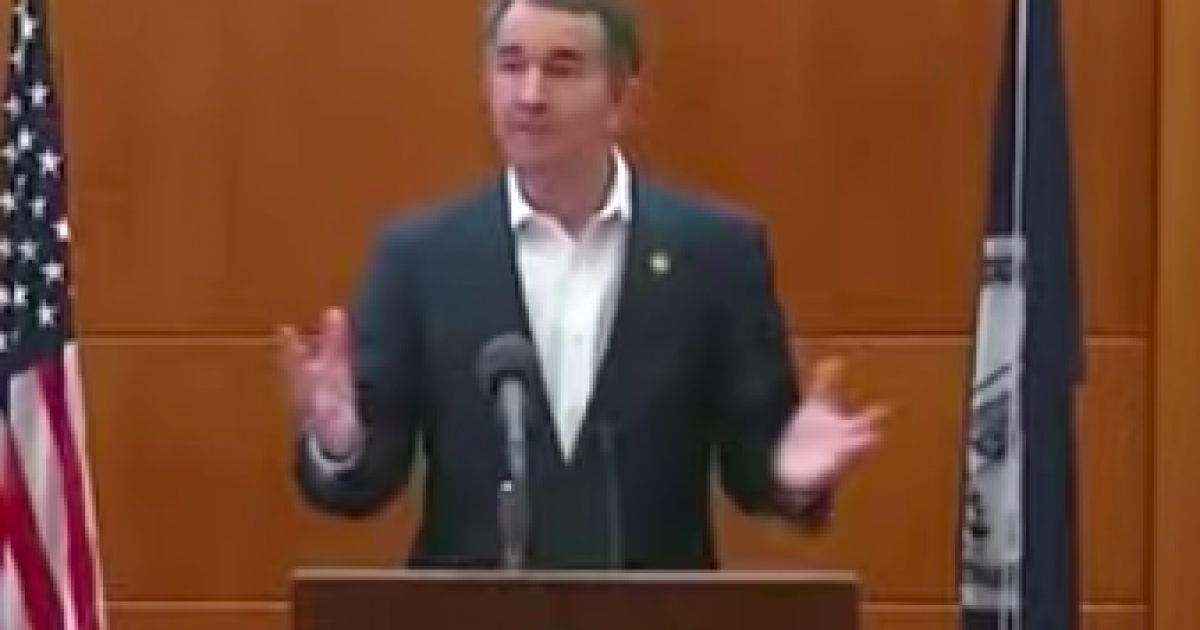
On March 27, 2020, National Right to Work Committee President Mark Mix urged Virginia Governor Ralph Northam to veto legislation on his desk that could give union officials union monopoly bargaining power over government employees, and repeal Virginia’s ban against requiring so-called union-only “Project Labor Agreements” (PLAs) for taxpayer-funded construction projects.
As Mix noted: “While these proposals would be wrong for Virginia taxpayers and workers anytime, they are especially harmful now since they would undermine state and local efforts to mitigate the damage being wrought by the COVID-19 virus on the Commonwealth.”
House Bill 358/Senate Bill 152 would repeal Virginia’s prohibition on using PLAs, while House Bill 582/Senate Bill 939 would let union bosses impose monopoly bargaining on public sector employees, and even workers who oppose joining the union.
“The fact is,” declared Mix, “both of these blatant union boss power grabs will actually increase costs for Virginia taxpayers just as government revenues are dropping because of the economic harm caused by COVID-19.”
HB 358/SB 152 would toss out Virginia’s present ban on PLAs. Under PLAs, only contractors who let unions bosses take control of their employees, or who are willing to work under rules that union officials establish, would be able to work on public works projects.
“Contracts on state construction projects should be awarded on the basis of merit and the value for taxpayers, not just on the basis of whether the company’s employees pay dues to a union boss,” Mix continued.
“The over 95% of Virginia construction workers who, for whatever reason, choose not to support a union in their workplaces would be denied the opportunity to work on the very projects their taxes finance,” remarked Mix.
On top of discriminating against the overwhelming majority of non-union workers and contractors, studies demonstrate that PLAs increase the cost of construction projects by 10-20% at a time when taxpayers are in an economic pinch thanks to the Wuhan virus pandemic.
“As Virginia’s state and local governments face declining tax revenues and the ever-increasing costs associated with Coronavirus, the last thing taxpayers need is to be getting less bang for their buck just to discriminate against non-union workers,” added Mix.
Mix noted that if HB 582/SB 939 was implemented, it would bring substantial harm to both public sector workers and Virginia taxpayers.
“The simple fact is, this legislation will both infringe on public employees’ rights and massively raise costs for taxpayers,” highlighted Mix.
“What you see in states with union monopoly bargaining is union officials and their handpicked politicians saying, ‘You scratch my back, I’ll scratch yours, and to heck with taxpayers!’ stated Mix.
Mix alluded to a 2016 study by the Heritage Foundation which demonstrated that a state passing government unionization schemes drives up the average annual tax burden by $3,000 for a family of four.
Furthermore, an analysis by the National Institute for Labor Relations Research discovered that the state and local tax burden in the 17 states with the strongest public unionization presence was 26 percent higher than in the 17 states where government union bosses have the fewest workers subject to monopoly union bargaining.
On top of that, the Maryland Department of Fiscal Analysis found that government sector bargaining costs between $1.3 and $1.4 million annually in process costs alone for just 12 “bargaining units” of state workers.
“Considering that this legislation could ultimately create hundreds of bargaining units around the state, we’re talking about a truly massive cost to taxpayers every year,” commented Mix.
“Without wasteful work rules and the ‘us versus them’ confrontational mentality, Virginia government is better able to focus on real priorities and respond to changing circumstances,” Mix added.
Mix called attention to how Virginia’s current prohibition on government sector bargaining, signed into law in 1993 by then-Governor Doug Wilder, gave it a notable advantage over other states, like its neighbor in Maryland.
“That, in addition to Virginia’s Right to Work Law, are major reasons Virginia landed CNBC’s #1 State for Business ranking.”
“As other states are recognizing, granting union bosses monopoly bargaining power not only drives up the costs to taxpayers but undermines the flexibility needed to deal with an unprecedented situation like dealing with the Coronavirus,” noted Mix.
Mix also mentioned that granting monopoly bargaining privileges to union officials will allow them to have special access to taxpayer dollars that all other organizations lack.
“In a representative system of government, it is wrong to allow special interest groups like union officials to bind government in its most basic function — the spending of public money and directing of public services,” stated Mix.
Mix even cited Franklin Roosevelt, a major proponent of forced unionization, who wrote, “All Government employees should realize that the process of collective bargaining, as usually understood, cannot be transplanted into the public service.”
Mix finished off by saying that, “For all these reasons, Gov. Northam must reject these union boss power grabs.”



